Filter by
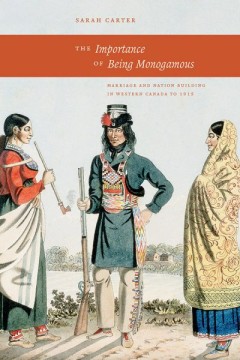
The Importance of Being Monogamous Marriage and Nation Building in Western C…
Sarah Carter reveals the pioneering efforts of the government, legal, and religious authorities to impose the “one man, one woman” model of marriage upon Mormons and Aboriginal people in Western Canada. This lucidly written, richly researched book revises what we know about marriage and the gendered politics of late 19th century reform, shifts our understanding of Aboriginal history during …
- Edition
- -
- ISBN/ISSN
- 9780888644909.01
- Collation
- -
- Series Title
- -
- Call Number
- 399 pages
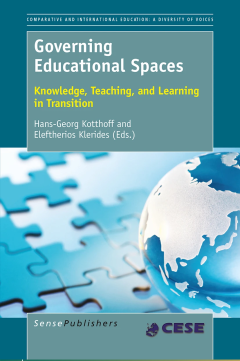
Governing Educational Spaces: Knowledge, Teaching, and Learning in Transition
The governance of education in many countries and regions of the world is currently in transition, challenging histories, remaking subjectivities and shaping possible futures. This book provides an up to date analysis and discussion of the cutting edge theme of educational governance from an international comparative perspective. The volume explores the landscape of educational governance in it…
- Edition
- -
- ISBN/ISSN
- 978-94-6300-265-3
- Collation
- VIII, 228
- Series Title
- -
- Call Number
- 370 GOV
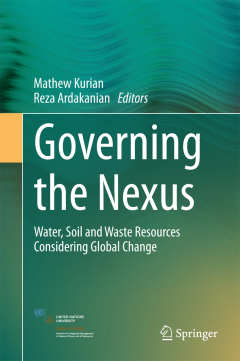
Governing the Nexus: Water, Soil and Waste Resources Considering Global Change
Global trends such as urbanization, demographic and climate change that are currently underway pose serious challenges to sustainable development and integrated resources management. The complex relations between demands, resource availability and quality and financial and physical constraints can be addressed by knowledge based policies and reform of professional practice. The nexus approach r…
- Edition
- -
- ISBN/ISSN
- 978-3-319-05746-0
- Collation
- XX, 230
- Series Title
- -
- Call Number
- 333.7 GOV
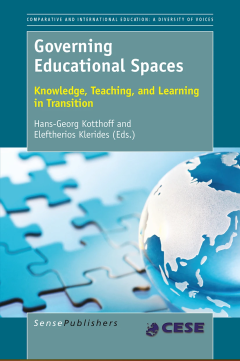
Governing Educational Spaces: Knowledge, Teaching, and Learning in Transition
The governance of education in many countries and regions of the world is currently in transition, challenging histories, remaking subjectivities and shaping possible futures. This book provides an up to date analysis and discussion of the cutting edge theme of educational governance from an international comparative perspective. The volume explores the landscape of educational governance in it…
- Edition
- -
- ISBN/ISSN
- 2214-9899
- Collation
- VIII, 228
- Series Title
- -
- Call Number
- 370 GOV

Hard Time Reforming the Penitentiary in Nineteenth-Century Canada
Tracing the rise and evolution of Canadian penitentiaries in the nineteenth century, Hard Time examines the concepts of criminality and rehabilitation, the role of labour in penal regimes, and the problem of violence. Linking the lives of prisoners to the political economy and to movements for social change, McCoy depicts a history of oppression in which prisoners paid dearly for the reciprocal…
- Edition
- -
- ISBN/ISSN
- 978-1-926836-96-6
- Collation
- -
- Series Title
- -
- Call Number
- 349 pages
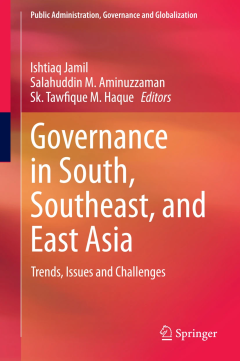
Governance in South, Southeast, and East Asia : Trends, Issues and Challenges
This book explores and analyzes governance and policy issues in South, Southeast, and East Asia. It maps governance challenges and analyzes current trends from the perspectives of democracy, public policy, and public institutions. Regional public administration and governance systems have undergone some phenomenal changes over the last three decades and have played a key role in the economic pr…
- Edition
- -
- ISBN/ISSN
- 978-3-319-15217-2
- Collation
- X, 258
- Series Title
- -
- Call Number
- 324.6 GOV
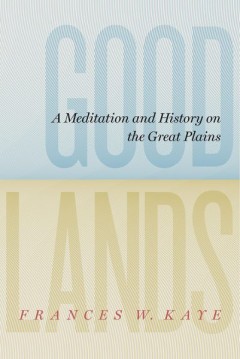
Goodlands A Meditation and History on the Great Plains
Amer-European settlement of the Great Plains transformed bountiful Native soil into pasture and cropland, distorting the prairie ecosystem as it was understood and used by the peoples who originally populated the land. Settlers justified this transformation with the unexamined premise of deficiency, according to which the Great Plains region was inadequate in flora and fauna and the region lack…
- Edition
- -
- ISBN/ISSN
- 978-1-897425-99-2
- Collation
- -
- Series Title
- The West Unbound: Social and Cultural Studies
- Call Number
- 388 pages
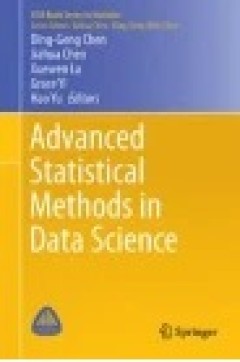
Advanced Statistical Methods in Data Science
This book gathers invited presentations from the 2nd Symposium of the ICSA- CANADA Chapter held at the University of Calgary from August 4-6, 2015. The aim of this Symposium was to promote advanced statistical methods in big-data sciences and to allow researchers to exchange ideas on statistics and data science and to embraces the challenges and opportunities of statistics and data science in t…
- Edition
- Ed. 1
- ISBN/ISSN
- 978-981-10-2594-5
- Collation
- XVI, 222
- Series Title
- ICSA Book Series in Statistics
- Call Number
- 332 ADV a
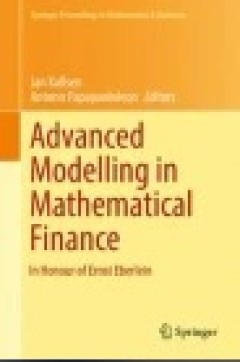
Advanced Modelling in Mathematical Finance: In Honour of Ernst Eberlein
This Festschrift resulted from a workshop on “Advanced Modelling in Mathematical Finance” held in honour of Ernst Eberlein’s 70th birthday, from 20 to 22 May 2015 in Kiel, Germany. It includes contributions by several invited speakers at the workshop, including several of Ernst Eberlein’s long-standing collaborators and former students. Advanced mathematical techniques play an ever-i…
- Edition
- Ed. 1
- ISBN/ISSN
- 978-3-319-45875-5
- Collation
- XXIV, 496
- Series Title
- Springer Proceedings in Mathematics & Statistics
- Call Number
- 332.46 ADV a

Advanced Microsystems for Automotive Applications 2016: Smart Systems for the…
This book contains the papers presented at the 20th anniversary edition of the AMAA conference held in Brussels, Belgium in 2016. The theme of the conference was “Smart Systems for the Automobile of the Future”. The automobile is currently being reshaped at unprecedented pace. Automation and electrification are the two dominant megatrends which dramatically change the choice and design of c…
- Edition
- Ed. 1
- ISBN/ISSN
- 978-3-319-44766-7
- Collation
- XIII, 268
- Series Title
- Lecture Notes in Mobility
- Call Number
- 388.31
 Computer Science, Information & General Works
Computer Science, Information & General Works  Philosophy & Psychology
Philosophy & Psychology  Religion
Religion  Social Sciences
Social Sciences  Language
Language  Pure Science
Pure Science  Applied Sciences
Applied Sciences  Art & Recreation
Art & Recreation  Literature
Literature  History & Geography
History & Geography